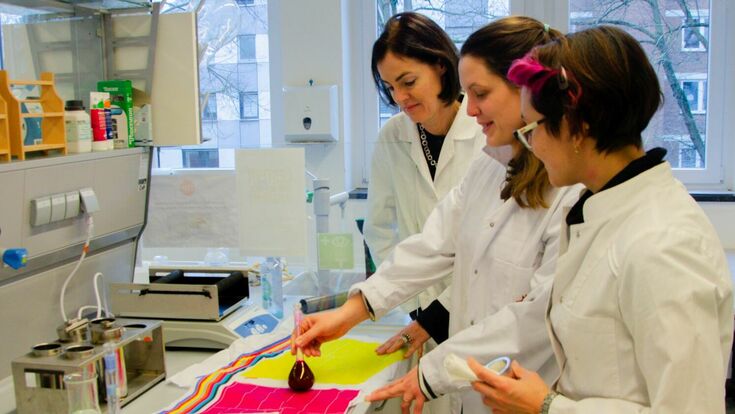Textile recycling is one of the biggest challenges of our time. Currently, the majority of used clothing (over 85%) is thermally recycled or ends up in landfill sites. A much smaller proportion is shipped to developing countries as second-hand clothing. Only less than one percent of clothing is recycled and then reprocessed into clothing.
There is a reason for this: recycling textiles is complicated. There are still no established systems for collecting and sorting used clothing. Mechanical processes for recovering fibers often result in poorer quality textile products and chemical processes are not yet technically developed or economically attractive enough. This also applies to polyester, the most frequently produced synthetic textile fiber material in the world, which is made from the same material as PET bottles. The recycled PET (rPET) currently used in the textile and clothing industry comes almost exclusively from recycled PET bottles.
Researchers from the Research Institute for Textile and Clothing (FTB) at The Hochschule Niederrhein and the Institute for Chemical and Thermal Process Engineering (ICTV) at Braunschweig Technical University are tackling the hurdles of simultaneously recovering monomers and valuable additives from the recycling of polyester textiles in the SiWerTEX project. The Federal Ministry for Economic Affairs and Climate Protection is funding the development work of the scientists under the leadership of Professor Dr.-Ing. Stephan Scholl (ICTV).
Together with German textile manufacturers and textile finishers, the scientists want to further develop a chemical process for PET and polyester recycling. The variety of finishing agents and additives used on clothing and technical textiles poses a major challenge: they are dyed, printed and treated with flame retardants or softeners.
The project is not only investigating how all of this can be effectively removed during recycling, but also whether the additives can be recovered as valuable materials. The focus in SiWerTEX is on the removal of dyes and the recovery of the phosphorus contained in flame retardants. The findings should help to produce textiles from the outset in such a way that they can be recycled at a later date.
At the end of the project, textile companies will be able to issue recommendations for action for recycling-friendly dyeing and finishing products.
"In the project, we are combining the expertise of TU Braunschweig in the field of PET recycling with the textile know-how of the FTB so that the textile accompanying materials will no longer pose a hurdle for polyester recycling in the future," predicts Professor Maike Rabe.


















